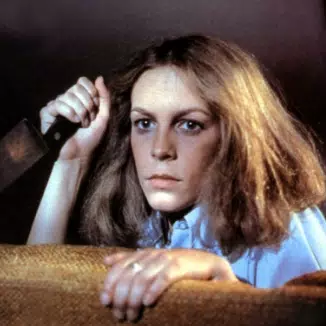Indeed, the 96th Academy Awards has come and gone. As I mentioned earlier, I consciously chose to bypass the live telecast of the Oscars. Instead, I invested my valuable weekend hours delving into the documentary 20 Days in Mariupol. Intriguingly, only after watching the film was I informed of its victory for "Best Documentary Feature Film" at the Oscars. However, my focus of this article isn't on my impressions of 20 Days in Mariupol. Rather, my purpose is to discuss the reasons behind my deliberate passing up of the live Oscar broadcast — and frankly, I couldn't be more satisfied with my choice. Truly, it's the most astute decision I've ever made this year!
Fairly predictable ceremony
The absence of Barbie's director, Greta Gerwig, from the "Best Director" nominations was not overlooked by host Jimmy Kimmel. With a sharp tongue and a keen eye, he stated assertively in his opening monologue, "Now Barbie is a feminist icon thanks to Greta Gerwig who many believe deserves to be nominated for Best Director." The camera then panned over to Gerwig, who appeared to have been caught off guard. Visibly moved, she looked as if she would cry the next moment. Speaking to the audience who was clapping, Kimmel quipped, "[Y]ou’re the ones who didn’t vote for her by the way. Don’t act like you had nothing to do with this."
In my opinion, this 20-odd-second-long brief yet potent segment of the monologue epitomizes the Academy of Motion Picture Arts and Sciences' (AMPAS) stance on the heated controversy surrounding Gerwig's Oscars snub. Clearly, AMPAS perceives Gerwig's absence from the nomination list as a collective decision by its members, not a systemic bias that calls for reform or even a mistake. When faced with revolutionary films like Barbie and pioneering creators who challenge the status quo, AMPAS appears to cling to its deep-rooted evaluation criteria. This largely accounts for the predictability of this year's Oscar results.
As anticipated, Oppenheimer, with its 13 nominations, triumphed in seven major categories to become the biggest winner of the night, including "Best Picture", "Best Director", "Best Actor", and "Best Supporting Actor" — a perfect match with my forecasts. Cillian Murphy, Oppenheimer's lead male actor, eloquently spoke in his acceptance speech about the film's narrative of the man behind the atomic bomb. He said that "[f]or better or for worse, we’re all living in an Oppenheimer world", so he would like to dedicate his award to peace-makers around the globe.
Despite Murphy and director Christopher Nolan's sincere hope for peace, one cannot ignore the irony of the former’s words. In an audience adorned with red pins signifying support for a ceasefire in the Israel-Hamas conflict, the Oscars presented the most important award to a film whose main character is synonymous with global destruction. Its win was mainly due to its portrayal as an epic saga of tragic heroism, passion, and solitude. Despite years of attempted reforms, AMPAS seems to have fallen back into its old patterns of perpetually favoring heroic narratives centered around male, particularly white male, protagonists. Within this rigid assessment framework, a film like Barbie is left to settle for consolation prizes, like "Best Original Song" for its soundtrack, "What Was I Made For?". Then again, it effortlessly brushed away its tears with the staggering $1.4 billion it earned at the box office.
Small surprises
Ryan Gosling, who played Ken in Barbie, belted out "I’m Just Ken" at the Oscars. I have to say his performance was nothing less than exceptional. His interaction and harmonization with Gerwig, Margot Robbie, America Ferrera from Barbie and Emma Stone made people realize how phenomenal this extraordinary film is. Barbie, Ken, men, and horses have ascended beyond mere entertainment and solidified their status as cultural icons. Their influence is undeniable, with or without awards.
The Oscars gifted us with the delightful surprise appearance of Messi, the canine star from the "Best Original Screenplay" winner, Anatomy of a Fall. Regardless of the controversy swirling around his presence at the nominees' luncheon, the entire world was healed as Messi offered an endearing spectacle when he clapped (yes, it was with the help of impressive prop work) while seated. It also unquestionably lifted viewer ratings.
When it comes to Stone's second time winning the "Best Actress" Oscar for Poor Things, I see it as both expected and astonishing at the same time. Poor Things is a cinematic dissection of the male gaze, and any moments that surpass this concept are solely owed to Stone's impeccable performance. The depth and richness that Stone brought to her character, Bella Baxter, stemmed from her extensive experience accumulated from slogging away in Hollywood; she embodies self-built success, inherent talent, acting prowess and unyielding resilience. The real question here isn't whether Stone merits an Oscar, but why AMPAS chose to acknowledge her for a role that seems to indulge the male gaze. This choice seems to contradict the ideologies of the other nominated actresses, Sandra Hüller and Annette Bening, who have valiantly contested the male gaze through their performances.
Zero relevance to me
Having thoroughly analyzed the 96th Oscars' winners list and witnessed the exhilarating moments at the ceremony through social media, it's unequivocal that the Oscars and I exist in distinctly different realms. They neither mirror my refined aesthetic standards and tastes nor shape my discerning film critiques. There’s a poignant dialogue in 20 Days in Mariupol that compels me to assert my opinions in the midst of the Oscar-centric global discourse. In the documentary, the Russian representative to the United Nations, Vasily Nebenzya, dismisses reports of infant casualties in Mariupol as fabrications. His belief? "Whoever wins the information war wins the war." The question that the journalist relentlessly fires at him — "Do you really believe what you said?" — echoed profoundly within me. As an ordinary viewer, I was struck by a powerful epiphany: when confronted with a formidable adversary holding divergent viewpoints, persuasion or victory can indeed be an uphill battle. What we can do, however, akin to the courageous documentary 20 Days in Mariupol, is assertively articulate our observations and feelings.
Regarding the 96th Oscars, I’ve voiced my truth. How about you? What is your unwavering truth?





















































Share your thoughts!
Be the first to start the conversation.